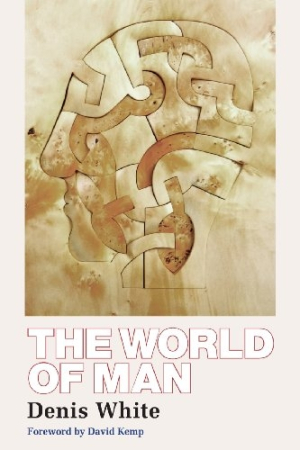
The World of Man
In The World of Man, Denis White, a philosopher who was once an advisor to an Australian prime minister, presents a philosophy that focuses on the dignity and importance of humans.
The book’s introduction states two underlying principles for White’s ideas: “Man is on his own, and man makes ways of life.” He freely admits that these ideas themselves are not particularly novel, but that they “provide the foundation for a comprehensive political philosophy.” Throughout the rest of the book, White shows how these simple central concepts affect everything from ideals like the value of mankind to practicalities like government and politics.
White emphasizes the importance of the power structure of government as a uniting, organizing force in the face of the division and individualism inherent in his two foundational truths. Positive concepts such as freedom and opportunity permeate the text, giving readers the sense that the world White describes is a good place, full of potential.
The ideas begin simply, but White spends over four hundred pages deepening and expanding them. For example, White discusses the mechanisms and motivations (both good and bad) of government, emphasizes what he sees as the true value of government, and then deepens the conversation: “There is some temptation to say that because politics is so important, politicians should be given every facility in doing their job, that they must be endowed with a very great deal of power. But this is a complete misconception and a dangerous one.”
The sixth chapter, the most pivotal and practical, is titled “The Deciders.” It examines the influences that surround all of mankind. Not only does White examine specific types of influences like family, society, religion, and personality, but he discusses the nature and power of influence itself: our ability to be influenced and to influence is a unifying trait in humanity.
Though White’s writing is clear and accessible, the indexing system used here—numbered according to paragraph rather than page number—is strange and potentially confusing. It may lead readers more precisely to the information, but the complications likely outweigh the benefits. Moreover, the paragraph numbers at the end of each paragraph are also distracting.
White employs the traditional usage of “man” to refer to “all mankind.” More progressive readers may be put off by this less-than-inclusive language. However, White appears to be striving to find a human-centered philosophy that includes and adapts to all variations and cultures of humanity.
Readers who embrace religion may find that White’s approach is too humanistic. This book will likely appeal to people interested in a positive, sensible, in-depth way of looking at the world.
Reviewed by
Melissa Wuske
Disclosure: This article is not an endorsement, but a review. The publisher of this book provided free copies of the book and paid a small fee to have their book reviewed by a professional reviewer. Foreword Reviews and Clarion Reviews make no guarantee that the publisher will receive a positive review. Foreword Magazine, Inc. is disclosing this in accordance with the Federal Trade Commission’s 16 CFR, Part 255.
